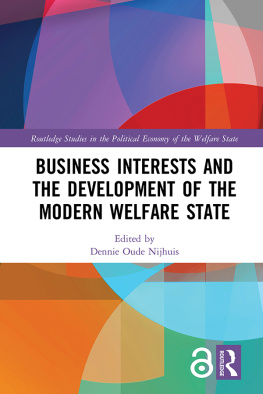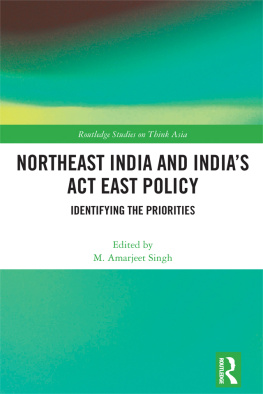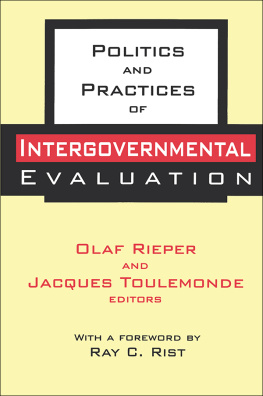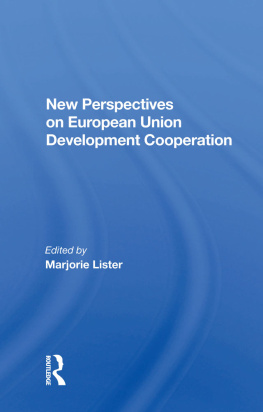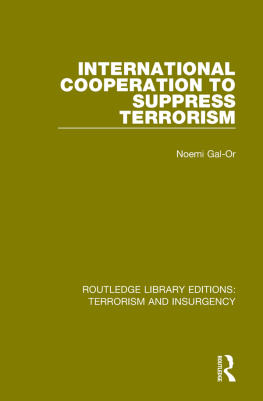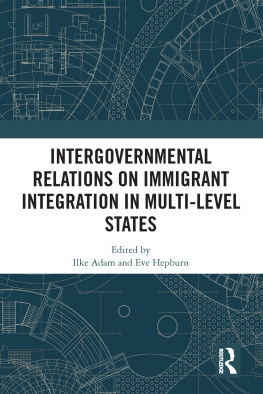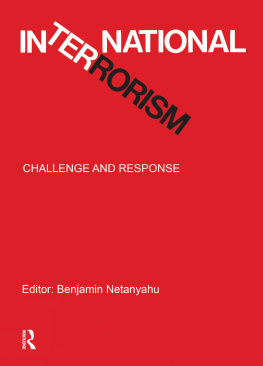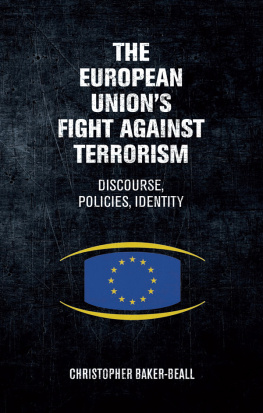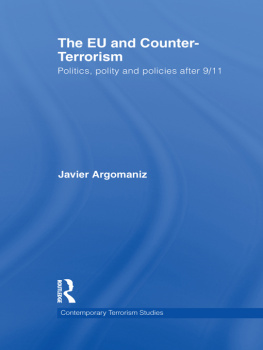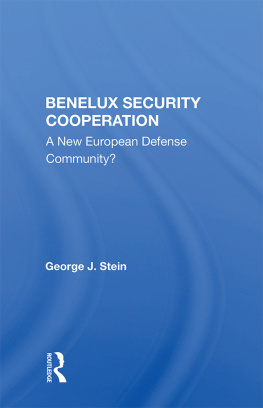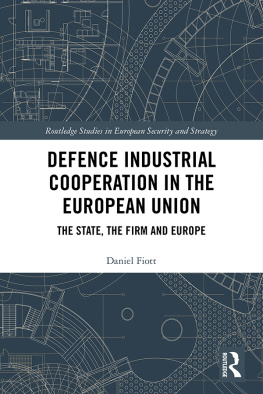European Democracies Against Terrorism
Oati International Series in Law and Society
GENERAL EDITORS
William L.F. Felstiner
Eve Darian-Smith
BOARD OF GENERAL EDITORS
Johannes Feest
Peter Fitzpatrick
Hazel Genn
Eliane Junqueira
Hubert Rottleuthner
Ronen Shamir
TITLES
Totalitarian and Post-Totalitarian Law
Edited by Adam Podgorecki and Vittorio Olgiati
Foreign Courts: Civil Litigation in Foreign Legal Cultures
Edited by Volkmar Gessner
Family Law and Family Policy in the New Europe
Edited by Jacek Kurczewski and Mavis Maclean
Procedural Justice
Edited by Klaus F. Rhl and Stefan Machura
Emerging Legal Certainty: Empirical Studies on the Globalization of Law
Edited by Volkmar Gessner and Ali Cem Budak
Prison Labour: Salvation or Slavery?
Edited by Dirk van Zyl Smit and Frieder Dnkel
European Democracies Against Terrorism
Edited by Fernando Reinares
First published 2000 by Ashgate Publishing
Reissued 2019 by Routledge
2 Park Square, Milton Park, Abingdon, Oxon, OX14 4RN
52 Vanderbilt Avenue, New York, NY 10017
Routledge is an imprint of the Taylor & Francis Group, an informa business
Copyright Fernando Reinares 2000
All rights reserved. No part of this book may be reprinted or reproduced or utilised in any form or by any electronic, mechanical, or other means, now known or hereafter invented, including photocopying and recording, or in any information storage or retrieval system, without permission in writing from the publishers.
Notice:
Product or corporate names may be trademarks or registered trademarks, and are used only for identification and explanation without intent to infringe.
Publishers Note
The publisher has gone to great lengths to ensure the quality of this reprint but points out that some imperfections in the original copies may be apparent.
Disclaimer
The publisher has made every effort to trace copyright holders and welcomes correspondence from those they have been unable to contact.
A Library of Congress record exists under LC control number:
Typeset by Manton Typesetters, Louth, Lincolnshire, UK.
ISBN 13: 978-1-138-73252-0 (hbk)
ISBN 13: 978-1-315-18838-6 (ebk)
Contents
FERNANDO REINARES
BRUCE HOFFMAN AND JENNIFER MORRISON-TAW
DAVID BONNER
DANIEL HERMANT AND DIDIER BIGO
FERNANDO REINARES AND OSCAR JAIME-JIMNEZ
LUCIANA STORTONI-WORTMANN
PETER CHALK
MONICA DEN BOER
MALCOLM ANDERSON
RONALD D. CRELINSTEN AND IFFET ZKUT
Guide
FERNANDO REINARES
Terrorism, as practised by small clandestine organizations with the alleged intention of affecting the structure and distribution of power, both at a national or international level, has been particularly notorious in Western Europe since the late 1960s. Most of that violence was perpetrated by underground groups having insurgent orientations, irrespective of their concrete ideological inspiration, but some had vigilante leanings instead. Though the duration and intensity of such lasting phenomenon has varied from one country to the other, it has generally produced important political and social consequences. In spite of its limited scope when compared with other manifestations of organized collective violence, terrorism can nonetheless exert a severe impact on the fundamental processes common to democratic regimes in the advanced industrial societies of Europe as well as elsewhere. For instance, systematic and sustained terrorist activity not only recurrently violates human rights, it also impedes the free exercise of civil liberties, alters the normal functioning of official institutions, hinders the management of public affairs by elected authorities or disrupts the autonomous development of civil society. Combined with other factors likely to strain or overload the political system, terrorism becomes a risk, if not exactly a threat, to the stability of liberal democracies, in particular those undergoing a process of consolidation. Any legitimately constituted government is thus expected to readily and persistently confront such an aggressive challenge to both the existing tolerant political order and the monopoly of physical coercion over a given territory claimed by the state.
Even when the formation of terrorist organizations is typically preceded by disruptive collective mobilizations which undergo successive stages of radicalization, to the extent that some cautious proactive intervention is somewhat feasible for authorities concerned, democratic governments rather more often have to intervene once illegal violence has been dramatically initiated. Still, terrorism poses serious dilemmas for executives trying to formulate and implement consistent policies aimed at neutralizing the phenomenon. Governmental responses, in the context of democratic regimes, are normally conditioned by currents of domestic public opinion, legal guarantees enjoyed by the citizens, the various state institutions involved and even those articulated interests eventually active in the sector of internal security. As to those liberal democracies known in highly industrialized societies, anti-terrorist policies have tended to include some strictly political decisions aimed at peacefully regulating social conflicts or affecting the internal cohesion of armed clandestine organizations, the enactment of legislations intended to deter extremists from resorting to a repertoire of terrorism and favour law enforcement operations, and a number of other specialized responses to be undertaken by state security agencies, these latter two increasingly adopted in a context of cooperation between countries due to the transnationalized character of the challenge. Such initiatives, which sometimes lead to differential results in terms of relative utility, depending on their own nature and the situational conditions, often also display coincidences as to their effectiveness across countries. It may nevertheless be asserted that measures generally considered most useful against terrorism and least dangerous to the fabric of open societies are those taken under the rule of law and in accordance with the principles of liberal democracies.
In the first part of this multidisciplinary book, contributors describe and examine elements of different internal security policies adopted and developed by several Western European governments, over the past three decades, in order to counter the challenge of terrorism. Bruce Hoffman and Jennifer Morrison-Taw, for instance, elaborate a national plan for successfully countering terrorism, based on a comparative study of seven selected past and present experiences, specifying four crucial elements: the existence of a functioning overall command and coordination structure; a mixture of legitimizing measures adopted by the authorities to build public trust and of adequate sensitive legislation; coordination within and between national intelligence services; and collaboration among governments and security forces of different countries. David Bonner focuses his chapter precisely on the security legislation enacted in the United Kingdom as part of the broad governmental policy implemented to face terrorist challenges, critically assessing the effectiveness of such measures and examining the influence on law of the European Commission and Court of Human Rights, as well as of the European Court of Justice, with respect to cases brought before them, relating all those issues to the constitutional order existing and reflecting also on the peace process in Northern Ireland. Daniel Hermant and Didier Bigo enter into some epistemological debate with respect to the very notion of terrorism, before devoting their contribution to the analysis of relevant changes observed with respect to state responses against armed clandestine organizations in France, from the middle 1970s until the 1990s, a rather notorious shift in severity taking into account the previous existence of generalized popular as well as elite beliefs holding the myth of a revolutionary past and thus reluctant to criminalize the use of political violence even within democracies.




